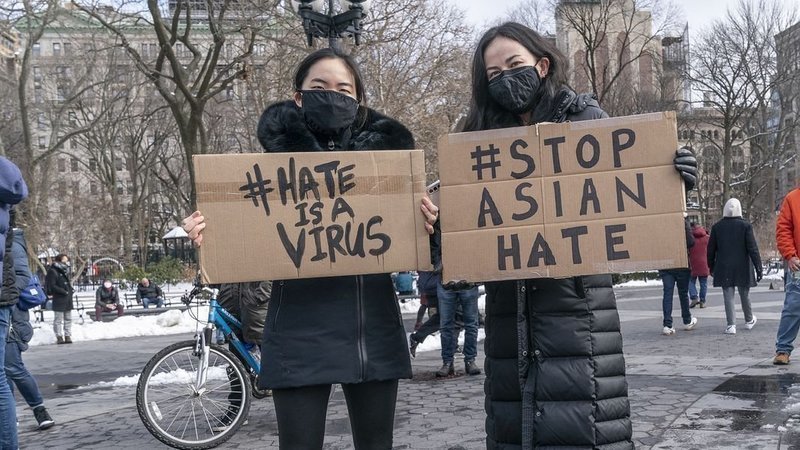Cyberbullying: Technology, Responsibility, and Community Safeguards
“Cyberbullying: Technology, Responsibility, and Community Safeguards”
[FREE EVENT OPEN TO MEMBERS OF THE PUBLIC]
Join us on Wednesday, May12th at 7pm EDT for a symposium on Cyberbullying, hosted by Eisenberg & Baum, LLP.
“Cyberbullying can happen to any child – with long lasting harm.”
This symposium exposes the harms of cyberbullying, a pandemic that is spreading online that causes irreversible consequences to lives of young people, explores solutions and seeks accountability.
Featured Remarks
- Story of a Teenager (told by Family members)
- Tyler Clementi Foundation
- Congressman Josh Gottheimer (NJ-5, NJ Anti-Bullying Task Force) (video feature)
Q&A with Expert Panelists
In a moderated Q&A discussion (including questions from the audience) we will discuss detection, mitigation, and safeguards through community efforts with three distinguished experts: Dr. Hinduja, Professor Sarah T. Roberts, and Professor Charalampos Chelmis.
The conversation will delve into the role of students, parents, and educators to seek effective measures to fight against cyberbullying. We will also examine the role of the tech sector, including the current state of technological solutions and AI-powered techniques that are being used for content moderation.
Moderator:
Juyoun Han, Esq. is a Partner in Eisenberg & Baum’s Artificial Intelligence Fairness and Data Privacy Practice Group. As a litigator, Ms. Han advocates for equity in the use of AI and works to eradicate systemic injustice, stemming from unchecked use of personal data and problematic automated decision systems.
Expert Panelist Bios:
Dr. Charalampos Chelmis is an Assistant Professor in the Department of Computer Science at the University at Albany, State University of New York, and Director of the Intelligent Big Data Analytics, Applications, and Systems (IDIAS) Lab, which is focused on socially important data science with a particular emphasis on models, algorithms, and systems to solve problems involving big, and often networked data. Dr. Chelmis has developed machine learning methods for cyberbullying characterization and detection, which have been presented at International conferences including TheWebConf and WebSci. Dr. Chelmis is also the co-organizer of the forthcoming tutorial Characterization, Detection, and Mitigation of Cyberbullying, which will be held as part of the 13th ACM Web Science Conference on June 21st, 2021. Dr. Chelmis can be found on Twitter at @CChelmis.
Dr. Sameer Hinduja is a Professor in the School of Criminology and Criminal Justice at Florida Atlantic University, Co-Director of the Cyberbullying Research Center, and Faculty Associate at the Berkman Klein Center at Harvard University. He is recognized internationally for his groundbreaking work on the subjects of cyberbullying and safe social media use, concerns that have paralleled the exponential growth in online communication by young people. He has written seven books, and his interdisciplinary research is widely published and cited in a number of peer-reviewed academic journals. As a noted speaker and expert on teens and social media use, Dr. Hinduja also trains students, educators, parents, mental health professionals, and other youth workers how to promote the positive use of technology. In addition, he is frequently asked to provide expert commentary by news organizations, and his work has been featured in venues that include CNN’s Anderson Cooper 360, NPR’s All Things Considered, the BBC, and The New York Times. He has received Auburn University’s Global Anti-Bullying Hero Award, won Florida Atlantic University’s Researcher of the Year award, presented on cyberbullying at a Congressional Briefing on Capitol Hill, testified in front of the Attorney General and the Departments of Education, Health and Human Services, and Homeland Security, and served as a Fulbright Specialist Scholar at Dublin City University. Dr. Hinduja is also the Co-Founder and Co-Editor-in-Chief of the International Journal of Bullying Prevention, a new peer-reviewed journal from Springer. You can follow him on Twitter at @hinduja.
Dr. Sarah T. Roberts is internationally recognized as a leading scholar on the emerging topic of commercial content moderation of social media (or CCM, for short), a term she coined to define the field study around the large-scale, industrial and for-pay practice of social media user-generated content adjudication. Professor Roberts is an Associate Professor at the University of California, Los Angeles (UCLA) in the Department of Information Studies where she serves as the co-founder and Co-Director of the UCLA Center for Critical Internet Inquiry, and holds an appointment in Labor Studies. Her monograph, Behind the Screen: Content Moderation in the Shadows of Social Media, was released to critical acclaim in 2019 from Yale University Press, with a new edition to follow in 2021. Find her on Twitter at @ubiquity75.
We hope you’ll join us. Register here.















